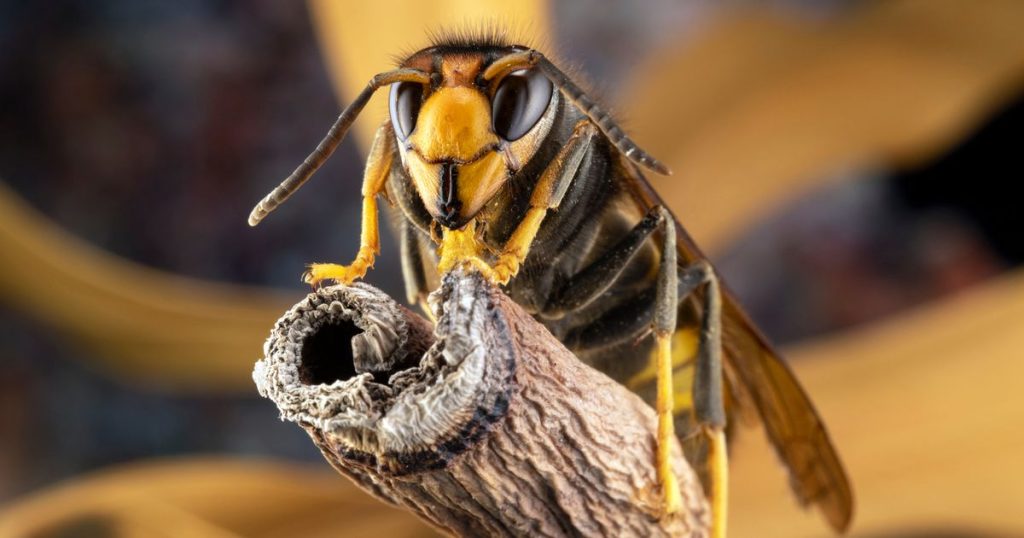The Asian hornet is a deadly insect known for its ability to kill humans when gathered in swarms and for its destructive behavior towards bee hives. The population of Asian hornets in the UK has been on the rise, with experts predicting a surge in sightings this year. The hornets are capable of demolishing entire beehives in a matter of hours and their sting can be fatal to humans and other large mammals. The British Beekeepers Association has raised concerns about the potential devastating impact of this surge in hornet numbers.
Beekeeper Simon Spratley, based in Kent, experienced a significant loss of hives due to Asian hornets last year. He described the aggressive behavior of the hornets, which can attack in swarms and have potent stingers. The hornets reproduce rapidly, with each nest producing up to 800 queens per year. This high rate of reproduction, compounded by favorable weather conditions, increases the risk of a widespread infestation in the UK. The British Beekeepers Association has launched an app to help the public report sightings of Asian hornets to control their numbers effectively.
The differences between the Asian hornet and the native European hornet are crucial in identifying and tracking the invasive species. The sizes and color patterns of the two hornets are distinct, with the Asian hornet being smaller and displaying dark abdomens with fine orange stripes. The recent sightings of Asian hornets in the UK have raised concerns among beekeepers and experts, as the early appearances suggest the potential establishment of the species in the country. Efforts are being made to monitor and manage the hornet population through public reporting and awareness campaigns.
The threat posed by Asian hornets extends beyond the beekeeping industry to human safety and the ecosystem at large. The rapid increase in hornet sightings in the UK, with a 3,800% rise last year alone, indicates the urgency of addressing this invasive species. Beekeepers, environmentalists, and government agencies are working together to track, report, and control the spread of Asian hornets. The survival and reproduction rates of the hornets are closely monitored to prevent further damage to bee populations and mitigate the risks to human health.
The impact of Asian hornets on bee populations can have cascading effects on agriculture and biodiversity, making it critical to address the issue promptly. Efforts to control the spread of Asian hornets are essential to protect bee colonies, pollination services, and the overall health of ecosystems. Public vigilance and reporting play a crucial role in detecting and managing the hornet populations, highlighting the importance of community involvement in wildlife conservation. By raising awareness and taking proactive measures, stakeholders can safeguard bee populations and mitigate the threats posed by invasive species like the Asian hornet.
The British Beekeepers Association, in collaboration with government agencies and researchers, is actively engaged in monitoring and managing the Asian hornet populations in the UK. The use of technology, such as the Asian Hornet Watch app, enables swift reporting and response to hornet sightings, contributing to effective control measures. By leveraging citizen science and public engagement, conservation efforts can be enhanced to protect bee populations and ecosystems from the destructive impact of Asian hornets. Through coordinated action and awareness campaigns, the UK aims to mitigate the risks posed by invasive species and preserve its rich biodiversity.


